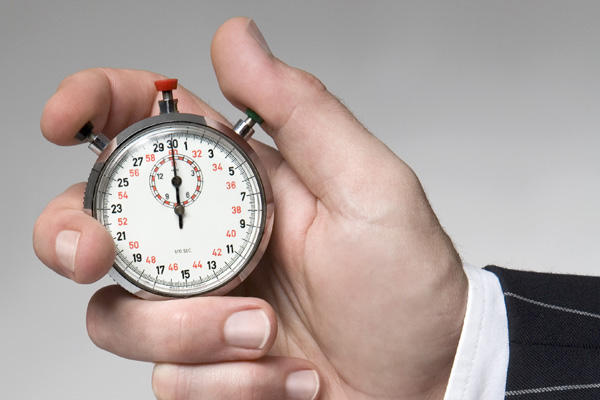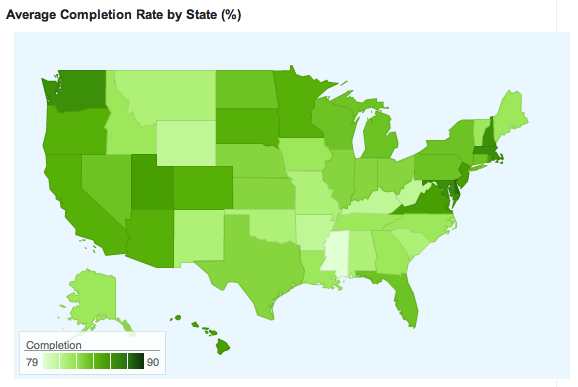As much as those in Silicon Valley get wrapped up in all the innovative technologies and businesses being built on top of and around the Internet, the fact of the matter is that there are still some striking disparities in the quality of internet access and speeds in the U.S. today.
Pando Networks, a service that optimizes online delivery of media assets such as games, video and software, drew a data sample from over 4 million users in the U.S. between January and June of this year and found, among other things, that the states with the fastest Internet download speeds are as much as ten times faster than their slowest counterparts. More specifically, the northeast and mid-atlantic region (New York through Virginia) averaged the highest download speeds, with 8 of the 10 fastest states, while the midwest and mountain-west regions racked up 9 of the 10 slowest.
And would you believe it? Rhode Island is the fastest state in the Union, averaging 894KBps, compared to Idaho, which came in last at an average speed of 318KBps. As one might expect, California, Oregon, and Washington ranked in the top 15, with the West coast maintaining, on average, much higher download speeds. Comparatively, the midwest’s slow connectivity speeds are likely a result of more scattered populations and a lower demand for high speed data infrastructure.
Pando’s study pointed towards a correlation between average download speeds and a lower percentage of complete downloads, and, as one might expect, affluent suburbs tend to be the fastest at the city level, while poorer, rural towns are the slowest. Topping the list was Andover, Massachusetts at 2,801 KBps while Pocatello, ID found its way into last place, averaging 251KBps. In terms of cities with high population densities, Seattle ranks number one with an average speed 1,017KBps, and San Francisco and Austin follow close behind at 912KBps and 911KBps respectively.
It also seems that there are some fairly large margins between the major internet service providers; not including business and private networks, Comcast Cable claimed the top spot, averaging download speeds of 890KBps, with Verizon and Cox following close behind at 788KBps and 757KBps, respectively. Of the major broadband providers, Road Runner was the slowest at 673KBps.
As to those providers of wireless 3G and 4G data plans, much to our surprise, AT&T Wireless topped the list with an average of 416KBps, whereas Sprint came in second at 391KBps, T-Mobile averaged 364KBps, Verizon at 216KBps, and ALLTELL at 155KBps. The same was true for carriers providing EDGE, 3G and 4G download services: AT&T again had the fastest download speeds with 391KBps and ALLTELL lagged at the rear of the pack with 155KBps.
For interactive heat maps of the distribution of connectivity speeds across the U.S., check ’em out here. Images of a lesser interactive nature below:
Excerpt image courtesy of CSMonitor.com


